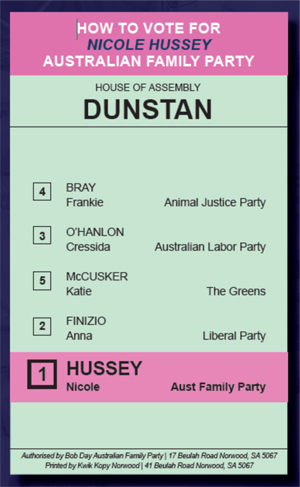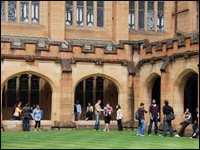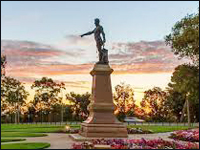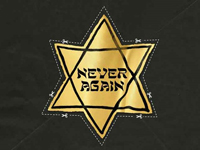Governments – the world’s worst peddlers of false information
‘We will continue to be your single source of truth.
Unless you hear it from us, it is not the truth’.
 So said former New Zealand Prime Minister, Jacinda Ardern.
So said former New Zealand Prime Minister, Jacinda Ardern.
Covid
When Covid hit in 2020, people had no reason to doubt what they were being told by their political leaders.
The pandemic, however, very quickly exposed the incompetence of many in the medical and scientific establishment, with politicians and public sector bureaucrats making up rules as they went along, and ramping up censorship.
Inquiries about whether the virus came from a lab leak, or anything negative about masks or vaccines, soon became misinformation or disinformation and was immediately censored.
Politicians, public sector bureaucrats, pharmaceutical company executives, all in cahoots with one another, blatantly lied to us. Again, the early bootleggers were amateurs compared with these people.
They were wrong on lockdowns. They were wrong on border closures. They were wrong on school closures. They were wrong on masking.
Poor people were hurt the most.
Anyone, including qualified medical professionals who said Covid vaccines were causing serious side-effects leading to large numbers of deaths, were silenced and threatened.
Academics who had been studying lockdowns were also blacklisted. Dr Jay Bhattacharya, a professor of medicine at Stanford University, was one of them. ‘Censorship of scientific discussion led to policies like school closures,’ he said. ‘A generation of children were hurt.’
At the behest of governments, social media platforms removed any and all content which questioned the safety or efficacy of the vaccines.
In April 2021, the Coalition government had Instagram remove a post which claimed that ‘Covid-19 vaccine does not prevent Covid-19 infection or Covid-19 transmission’, a statement that clearly was accurate.
Ivermectin was prohibited from being prescribed in Australia until January 2021, by which time the vaccination rate had reached 98%. Prohibition of Ivermectin was enforced right until the very end of the vaccine roll-out.
We now know the Covid-19 vaccines were neither safe nor effective. They did not prevent infection or transmission and have been linked to blood clots, heart conditions and other ‘died suddenly’ events.
A peer-reviewed study published in January 2024, found that more deaths were caused by the mRNA vaccines than were saved by it.
As Thomas Sowell once said, “It is difficult to imagine a more dangerous way of making decisions than by putting those decisions into the hands of people who pay no price for being wrong.”
Climate Change and Renewable Energy
Probably no other area of public debate has been more manipulated than climate change.
What started as ‘the greenhouse effect’, soon became ‘global warming’ which morphed into the now all-encompassing ‘climate change’.
To up the ante even more, United Nations Secretary-General António Guterres stated recently, ‘The era of global warming has ended; the era of global boiling has arrived”.
Global boiling obviously hasn’t yet reached the poles, as Arctic ice is currently at its greatest extent in more than 20 years.
Renowned quantum physics scholar Dr John Clauser, who received the Nobel Prize in Physics has stated, ‘I do not believe there is a climate crisis’.
More bootleggers, in the form of renewable energy merchants, have leapt on to the climate change bandwagon with unbridled zeal and are raking in billions of dollars gaming the system, raising energy prices, impoverishing consumers, destroying jobs, and fleecing taxpayers.
Indigenous matters
Toddlers and pre-schoolers in childcare centres across Australia are being taught that Australia was stolen from Aboriginal and Torres Strait Islander people.
More than 7,000 schools and daycare centres now have formal ‘acknowledgements of country’ in place, which includes children singing or reciting that the land on which they sit belongs to Indigenous people.
At SDN (formerly Sydney Day Nursery) Children’s Services in the ACT, kindy kids are taught about ‘stolen land’ as they recite an acknowledgement of country each morning.
‘The foundation for this learning begins when the children enter the centre as infants’, the organisation says on its website.
‘Now older preschoolers participate in the daily ritual of acknowledging country to build on the explicit teaching about stolen land.’
As NSW Libertarian Party MP John Ruddick said, ‘children were being indoctrinated to feel ashamed of their country’.
5. The Bill and Religious Freedom
There is no doubt that any ‘religious exemptions’ in the Bill will not make life less hazardous for faith-based organisations.
While certain religious groups which might be advantageous to Labor’s voting base will be protected, other religious groups most likely will not.
As we have seen recently, clear examples of the crime of incitement to violence – perpetrated seemingly with impunity – will, undoubtedly, be given more latitude.
Christians, however, will not enjoy similar leniency.
The Australian Law Reform Commission has already recommended the removal of the right for Christian schools to hire staff who share their values.
And Christians will most certainly not be able to criticize the ‘trans’ movement or ‘gender affirming’ practices.
The Bible says, ‘You will know the truth and the truth will set you free.’ (John 8:32)
The world, however, says truth is subjective – ‘my truth, your truth, their truth …’
There is one institution, however that has stood against all this for thousands of years – the family. The family can do a lot to help combat the lawlessness of this digital jungle and its predators. The family is the ideal place to start building relationships, learning who to trust, who not to trust, who to communicate with, and who not to communicate with.
Society has three levels of protection against harm. Level one is a person’s own conscience; level two is the family to keep its members in check; and level three is the police. More focus on level two, the family, might be our only hope for the future.
Thank you for your support.
 The story is told of the founder of Dubai, Sheikh Rashid, who, when asked about the future of his country replied:
The story is told of the founder of Dubai, Sheikh Rashid, who, when asked about the future of his country replied: In ‘The Adventure of Silver Blaze’, one of the Sherlock Holmes short stories, Holmes is sent to investigate the disappearance – on the eve of an important race – of a champion racehorse called Silver Blaze, and the death of its trainer John Straker.
In ‘The Adventure of Silver Blaze’, one of the Sherlock Holmes short stories, Holmes is sent to investigate the disappearance – on the eve of an important race – of a champion racehorse called Silver Blaze, and the death of its trainer John Straker. Well, both men are now gone, the Liberal Party having lost both State and Federal elections in 2022.
Well, both men are now gone, the Liberal Party having lost both State and Federal elections in 2022. We are all familiar with the story of Jesus overturning the trading tables and driving out the moneychangers from the temple.
We are all familiar with the story of Jesus overturning the trading tables and driving out the moneychangers from the temple.
 In William Blake’s hymn Jerusalem, the phrase ‘those dark Satanic mills’ was assumed to be referring to the cotton and woollen mills of his time and the mills’ terrible working conditions.
In William Blake’s hymn Jerusalem, the phrase ‘those dark Satanic mills’ was assumed to be referring to the cotton and woollen mills of his time and the mills’ terrible working conditions. In Act 1 of Shakespeare’s great play Macbeth, the three witches appear before Macbeth and his friend Banquo. The witches predict that Macbeth will be king, and that one of Banquo’s sons will also be king one day.
In Act 1 of Shakespeare’s great play Macbeth, the three witches appear before Macbeth and his friend Banquo. The witches predict that Macbeth will be king, and that one of Banquo’s sons will also be king one day. In our Newsletters this year we have covered everything from the Voice bomb to the atom bomb, from Israel to industrial relations, from Gough to the Gulags, from federalism to forgiveness, from taxation to Truman, and from housing to Hamlet – and a whole lot more in between.
In our Newsletters this year we have covered everything from the Voice bomb to the atom bomb, from Israel to industrial relations, from Gough to the Gulags, from federalism to forgiveness, from taxation to Truman, and from housing to Hamlet – and a whole lot more in between. On 1 July 2014, my first day as a Senator, Adelaide’s Advertiser newspaper published an opinion piece I had submitted titled, Shedding the ‘Bludger State’ tag, in which I implored the SA State Government to stop bludging on the other states and start standing on its own two feet.
On 1 July 2014, my first day as a Senator, Adelaide’s Advertiser newspaper published an opinion piece I had submitted titled, Shedding the ‘Bludger State’ tag, in which I implored the SA State Government to stop bludging on the other states and start standing on its own two feet. It’s been said that whatever is done to the Jews, is done for the Jews.
It’s been said that whatever is done to the Jews, is done for the Jews.